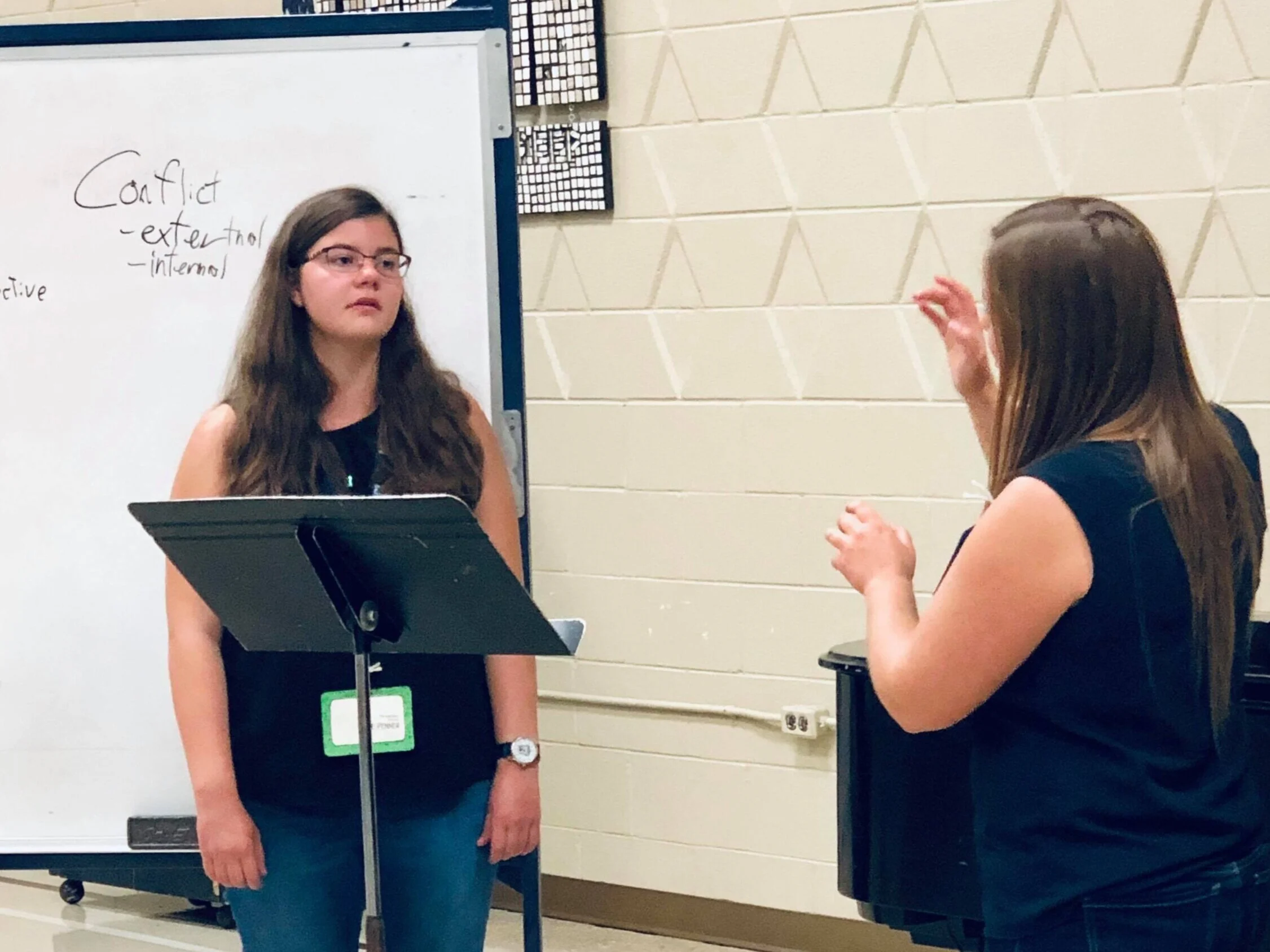find your voice.
When I was in my undergraduate degree, I was asked to develop a personal philosophy of music education, and became fascinated by this phrase. I was intrigued by the simplicity and broadness of this sentiment. Find Your Voice.
It wasn’t until I went to a choral concert lead by my high school choral director, Rick Heppner-Mueller, when I realized that I had first learned this phrase from him.
Throughout my life, my career as a performer and teacher has been informed by so many different teachers and musicians. Voice teachers, choral directors, piano teachers, coaches, acting teachers, dance instructors, English teachers and so many others. Each of these people have helped me to discover the power of my own voice.
My job as a voice teacher is to empower my students to use their own voices. This is the centerpiece of my philosophy of voice education. More specifically, my job is to help students understand their instruments, to develop smart musicianship, and to nurture their artistry. All of these things can help someone find their voice.
Understanding Your INstrument
The creation of vocal tone is dependent on the instrument of the individual. My job is to help each student learn how their instrument works, so that they can use their instrument in a healthy, efficient way to create beautiful sound. This understanding will empower the singer to experiment in a variety of styles and genres.
developing smart Musicianship
Developing smart musicianship involves training the skills of sight reading, ear training, and understanding the basics of music theory and history. This helps us to collaborate with other performers and gives us a deeper understanding of the tradition of music making we are participating in.
Nurturing the artist
Above all, singing is an art form. To develop artistry, we must explore storytelling, have an understanding of the context of the music we are performing, and experiment with musical elements. These skills will help us to create engaging performances.



